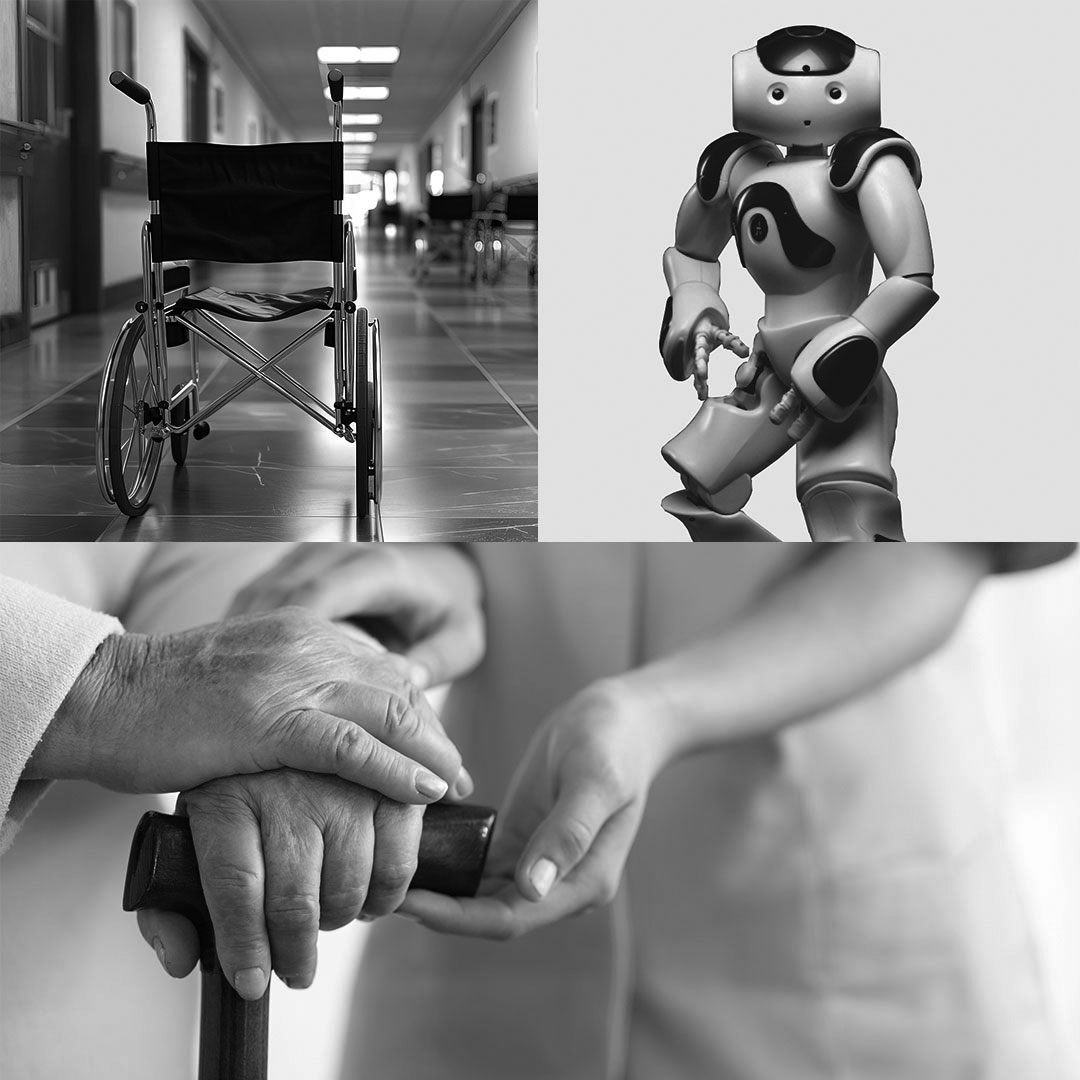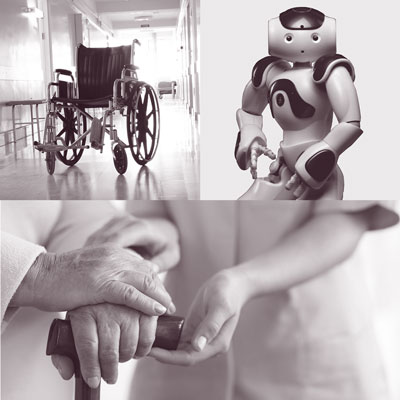
Robotics and assistive neurotechnologies in the care sector – challenges for society
- Project team:
Christoph Kehl (Project Manager)
- Thematic area:
- Topic initiative:
Committee on Education, Research and Technology Assessment
- Analytical approach:
TA project
- Startdate:
2016
- Enddate:
2018
sprungmarken_marker_1945
Subject and objective of the project
Technological trends in the field of robotics and neurotechnologies involve an increasing merger of humans and machines. In view of the demographic change, the areas of care and health are considered to be an important field of application for such developments. This is due to the fact that in future significantly increasing demands for care as well as a growing shortage of skilled care personnel is to be expected which – as it is postulated – can only be faced by increasingly using new technologies. Especially autonomously acting service robots are considered to have a great potential to reduce the burden on care personnel and to support people in need of care in their everyday life. Corresponding applications are currently being developed and tested. At the same time, it is obvious that care is a morally extremely sensitive area due to the fragile condition of people in need of care so that numerous normative challenges are involved. Thus, care of the elderly is a field in which the ambivalence of human-machine interaction is culminating in a paradigmatic way.
The TA project focused on the following questions:
- How can robots contribute to good care and which ethical challenges result from the increasing mechanisation and particularly from an automation of everyday care?
- What are the current regulations for dealing with robotic care technologies, particularly with regard to issues of security, liability and data privacy? Are they appropriate to the upcoming challenges?
- What could be an adequate governance of technology development in order to find solutions that are demand-oriented and capable of gaining acceptance?
Results
In the field of care robotics, intensive development efforts have been taking place for a long time already. However, only few products are used in the care practice so far. Mostly, these are special applications (e. g. eating aids or therapeutic aids such as the robot seal PARO) with limited autonomy which do not necessarily correspond to the common idea of a robot assistant. More complex robot assistants, however, have not yet progressed beyond the status of a research platform.
According to various experts, the fact that robotic care applications have still not become widespread is because in the development process too little attention has been paid so far to the needs and problems of people in need of care. Therefore, the resulting applications do not offer a tangible added value with regard to care of the elderly. For this reason, the development of new technologies should not focus on technical feasibility alone, but on the real assistance demands of potential users and other people concerned who have to be integrated in the development process in a participatory way.
It is of major significance that ethical aspects are also increasingly examined within the framework of technology development. In this context, the question is how the use of robots affects interaction between humans – an aspect without which good care is unimaginable. There are fears that care work is increasingly subject to a mechanistic understanding, i. e. that it is reduced to purpose-related concerns only and that emotional aspects are marginalised accordingly – particularly if this can help to realise economic saving potentials. There are still not enough reliable and generalisable findings regarding the impacts of robotic systems on care processes. It is therefore all the more important to evaluate ethical aspects already prior to bringing the technology into use and to integrate these evaluations into a tangible design of applications.
The development of ethically responsible as well as demand-oriented care technologies is a long-term, open-ended task that depends considerably on public funding, particularly in the early stages of product development. In recent years, both at the national and European level, there have been significant research policy efforts to consequently deal with ethical, social and legal issues in publicly funded projects. It is a key task of research funding to make sure that these strategic objectives are consistently implemented at the project level.
Currently, it is still unknown whether at all or when a widespread use of robots in the care sector is to be expected. Nevertheless, the following framework conditions have to be observed to be prepared for new developments:
- Setting the course regarding professional and social welfare law: It is an important political task to ensure that automation in the care sector is not systematically used for reducing personnel.
- Issues of security and liability: Security and maintenance obligations of the operators have to be defined in a transparent way and civil liability regulations have to be developed in order to ensure a distribution of the specific risks of using robots that satisfies the various interests involved.
- Public debate: Finally, designing good care is a task of society as a whole requiring a systematic exchange with regard to what care shall be like in the future as well as to the desirable role of technical assistive solutions.

20 February 2019
15.00 - 17.30
Publications
Kehl, C.
2018. Büro für Technikfolgen-Abschätzung beim Deutschen Bundestag (TAB). doi:10.5445/IR/1000094095
Kehl, C.
2018, May. Büro für Technikfolgen-Abschätzung beim Deutschen Bundestag (TAB)
Kehl, C.
2018, May. Büro für Technikfolgen-Abschätzung beim Deutschen Bundestag (TAB)
In the Bundestag
- Vorgang - Bericht, Gutachten, Programm im Dokumentations- und Informationssystem für Parlamentsmaterialien (DIP)
